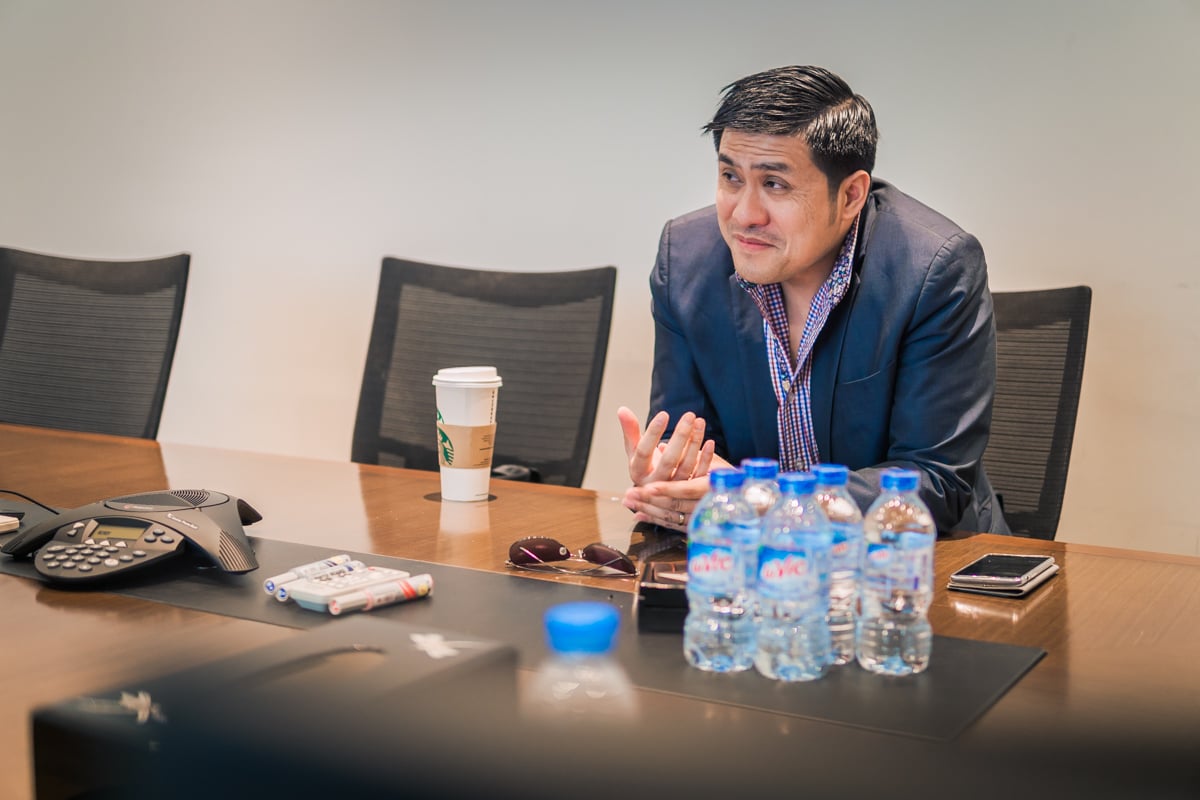In broadening our insights of the new Vietnam, we meet with James Điền Bùi, managing partner at Lotus Impact, an investment fund focused on creating opportunities and value by deploying impact capital and venture building services to enterprises throughout Vietnam. We take a look at what Lotus Impact is all about, his vision for Vietnam’s future, and what sort of areas in Vietnam’s economy that he’s most excited about.
What were your first impressions of Vietnam? What first led you back here?
During my graduate studies in the late 90s, I was drawn to the economic development opportunities, especially rural community development, which was my core focus and personal passion. I was awestruck by the lack of the most basic infrastructure like electricity and clean water, yet at the same time intrigued by the number of positive policy developments, e.g. Đổi Mới, WTO, Xã Hội Hoá. For nearly 20 years, I’ve followed Vietnam closely and evolved with economic growth, which has led me to founding Lotus Impact.

What’s the investment thesis behind Lotus Impact Fund?
We founded Lotus Impact four years ago in partnership with VinaCapital, one of the largest and most experienced investment management firms in Vietnam. VinaCapital was a seed investor in the Fund. The vision is to create a hybrid, private equity and venture fund, providing capital to small and medium-sized enterprises (SMEs) that are not only economically viable but also have a strong social value proposition. The number of SMEs in Vietnam is large, about 500,000.
For us, the big questions included: can we work with them to build the capacity in rural and underprivileged urban areas? Improve livelihood and wages of thousands or millions? We’ve evolved since the early investment thesis, becoming part incubator and accelerator. We take a hands-on approach to the management of the business, working directly with the entrepreneur. We like to set some sort of exit milestone, progressing toward larger institutional investment in 3-7 years.

In your vision, what will Vietnam look like in ten years?
From my lens, I’m idealistic. But also grounded in daily realities. Vietnam is growing steadily, to the tune of 6% to 7% per year, and this growth is expected to be maintained at least for the next 5 years, hopefully the next 10. There are many things in place that will help maintain this growth, like a large domestic consumption base, a rising middle class, continuously rising levels of foreign direct investment, increasing trade and political ties within the region and even globally.
However, Vietnam also has some challenges, such as poor infrastructure, a deteriorating education system, poor institutional quality, and rising levels of public debt, that will make it challenging for the country to escape the middle-income trap. I do believe that Vietnam will be much more developed 10 years from now, but it will take perhaps another 20 years for us to see its true potential.
What investment verticals are you most excited about in the next ten years?
There are three verticals. Education, agriculture, and hospitality. Of the three, agriculture is most interesting since it has larger macro-side opportunity. It accounts for 50% of Vietnam’s GDP yet is still largely under-developed and vastly behind neighboring competitors like Thailand. It’s still largely untapped and has room to grow, especially in regards to efficiency. There are methods and infrastructure in the value chain that haven’t been implemented here.

At Lotus Impact, we’ve learned that working with international partners and consortiums to drive larger scale progress in these verticals is essential. They’ve got the capital to operate at those levels and political capital to work with local governments, and they have been successful. By teaming up with these organizations, Lotus can not only play the role of investor, but also as an activist and financial advisor to really impact these companies.
Do returnee Vietnamese who studied abroad and came back have a different vision of Vietnam compared to local entrepreneurs?
Yes. It lends a perspective that few have. If you went overseas, it probably means you have more resources than the average person, which is essentially access on so many different levels. For example, participating and/or building networks overseas and expanding these same networks to Vietnam are distinct comparative advantages. At the same time, access and agency, changes everything. Agency is an intention and action to see and do something in your world from an “I must do something with my time” because you have choice. I think returnees who realize agency are the ones with true competitive advantage.

Who should we speak with next?
Jimmy Pham, the founder of KOTO Catering. He leads an organization with a social mission to provide hospitality opportunities to disadvantaged youth in Vietnam.
Viet Thanh Nguyen, the Pulitzer Prize winner of the book The Sympathizer. He also recently released a new book, The Refugees.
Sonny X. Vu from Misfit. He can provide a timely entrepreneurial perspective on building an international company that happens to impact Vietnam. It has less to do with Vietnam per se, and more about just being an entrepreneur.
Finally, Bao Nguyen the mayor of Garden Grove. He recently ran for US Congress. He’s a progressive with a refugee story and has been working to expand the diaspora conversation.



